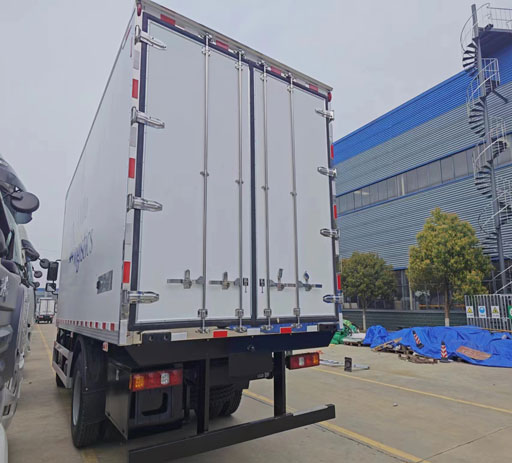Mining Truck Price: A Comprehensive Guide

Mining trucks are crucial for transporting materials in mining operations. Their price can vary significantly based on various factors including size, brand, and capabilities. This article will delve into the numerous factors affecting mining truck prices, provide examples, and offer insights for buyers considering this investment.
Understanding Mining Trucks

Mining trucks, often referred to as haul trucks or off-road trucks, are designed to transport large quantities of materials in mining and construction sites. These vehicles are built to handle rough terrain, heavy loads, and demanding working conditions. Understanding the types of mining trucks available is the first step in grasping their price disparities.

Types of Mining Trucks
Mining trucks can be categorized into several types based on their size and function:
- Articulated Dump Trucks (ADTs): These trucks are known for their maneuverability and flexibility on rough terrains. They typically have a lower price point.
- Rigid Dump Trucks: These are larger and can carry heavier loads, making them suitable for larger mining operations. Their price is generally higher.
- Electric Mining Trucks: These trucks are becoming increasingly popular due to their lower operational costs and environmental benefits. Their initial cost can be steep due to advanced technology.
Factors Affecting Mining Truck Prices
The price of mining trucks is influenced by several factors:
1. Brand and Manufacturer
Different brands offer different pricing structures. Leading manufacturers like Caterpillar, Komatsu, and Volvo have established reputations, which often means higher prices due to reliability and support.
2. Size and Capacity
The size of the truck is a primary determinant of its price. Larger trucks capable of carrying more weight tend to be more expensive. For instance, a truck with a capacity of 250 tons will be pricier than one that carries only 100 tons.
3. Features and Technology
Advanced features, such as automation, GPS tracking, and enhanced safety features, contribute to the vehicle’s cost. Buyers must decide which features are essential for their operations.
4. Fuel Type
Conventional diesel-powered trucks often have lower upfront costs compared to electric or hybrid trucks. However, electric trucks offer long-term savings due to reduced fuel and maintenance costs.
5. New vs. Used Trucks
New trucks naturally come with a higher price tag than used ones. Buyers may find considerable savings by purchasing a used truck, but they should be cautious about potential maintenance issues.
6. Geographic Location
The cost of mining trucks can vary depending on where you live. Transport costs, regional demand, and local regulations can all influence the price.
Current Mining Truck Prices
Mining truck prices can vary widely based on the factors mentioned above. As of 2023, here are some general price ranges for different types of mining trucks:
| Type of Mining Truck | Price Range (USD) |
|---|---|
| Articulated Dump Truck | $100,000 – $300,000 |
| Rigid Dump Truck | $400,000 – $1,200,000 |
| Electric Mining Truck | $1,000,000 – $3,000,000 |
| Used Mining Truck | $50,000 – $900,000 |
Practical Tips for Buying a Mining Truck
1. Determine Your Needs
Before purchasing a mining truck, assess the specific requirements of your operation, such as load capacity, terrain type, and expected hours of operation.
2. Research Brands and Models
Do thorough research on different brands and models. Look for customer reviews, performance analyses, and case studies that can provide insights into reliability and cost-effectiveness.
3. Consider Total Cost of Ownership (TCO)
Instead of focusing solely on the purchase price, evaluate the total cost of ownership, which includes fuel, maintenance, insurance, and resale value.
4. Inspect Used Trucks Thoroughly
If considering a used truck, inspect it thoroughly to assess its condition. Check for signs of wear and tear, and consider getting a professional assessment.
5. Negotiate the Price
Always be prepared to negotiate the price. Research comparable sales to have a benchmark for discussions, and don’t hesitate to walk away if the price doesn’t fit your budget.
Financing Options for Mining Trucks
Mining trucks are significant investments, and various financing options can help buyers manage costs:
1. Bank Loans
Traditional bank loans can be a viable option; however, they often require good credit history and collateral.
2. Leasing
Leasing allows companies to use a truck without the upfront costs of purchasing it outright. This option can be beneficial for companies that need flexibility.
3. Manufacturer Financing
Some manufacturers offer in-house financing or partnerships with financial institutions. Look into these options for potentially favorable terms.
4. Trade-In Options
If you currently own mining trucks, consider a trade-in to reduce the final price. Manufacturers and dealerships may provide trade-in incentives.
Maintenance Costs of Mining Trucks

Owning a mining truck comes with ongoing maintenance costs that should be factored into the overall budget:
1. Routine Maintenance
Regular maintenance, including oil changes, tire replacements, and brake inspections, is necessary to keep trucks running efficiently.
2. Repairs
Unexpected repairs can arise, and having a budget for these situations is crucial. Investing in quality components may minimize long-term repair costs.
3. Downtime
Consider the impact of downtime on your operation. Trucks that require frequent repairs may lead to significant productivity losses, affecting overall profitability.
The Future of Mining Trucks
As technology advances, the future of mining trucks is likely to be shaped by several emerging trends:
1. Autonomous Trucks
The industry is seeing a growing interest in autonomous mining trucks, which can operate without a driver. This not only increases safety but can also reduce operational costs.
2. Green Technology
With an increased focus on sustainability, the development of electric and hybrid trucks is becoming mainstream, appealing to companies aiming to reduce their carbon footprint.
3. Advanced Telemetry
Increasing integration of telemetry and data analytics will drive efficiency by providing operators with real-time insights into vehicle performance and maintenance needs.
FAQ Section
1. What is the average price of a mining truck?
The average price of a mining truck typically ranges from $100,000 to over $3,000,000, depending on its type, brand, and features.
2. Are used mining trucks worth buying?
Yes, used mining trucks can offer significant savings, but buyers should conduct thorough inspections and consider the potential for hidden maintenance costs.
3. How much do maintenance costs for mining trucks average annually?
Annual maintenance costs can vary widely, but they often fall between 5% to 10% of the truck’s purchase price.
4. What financing options are available for purchasing mining trucks?
Financing options include bank loans, leasing, manufacturer financing, and trade-ins for existing trucks.
5. How do I choose the right mining truck for my operation?
Consider factors like load capacity, terrain conditions, fuel type, and total cost of ownership when selecting a mining truck.
6. What are the benefits of electric mining trucks?
Electric mining trucks offer lower operational costs, reduced emissions, and less noise compared to diesel-powered alternatives, making them an attractive choice for sustainable operations.
